Real butcher block countertops offer a unique blend of functionality, warmth, and natural beauty to any kitchen or workspace. Crafted from solid wood, typically maple, walnut, cherry, or oak, butcher block countertops are renowned for their durability and timeless appeal. Here’s a comprehensive guide to real butcher block countertops:
Construction and Material: Real butcher block countertops are constructed by gluing together solid wood strips to form a sturdy and durable surface. The most common wood species used for butcher block countertops are maple and walnut, known for their hardness and durability, although other hardwoods such as cherry and oak are also popular choices.
Grain Orientation: The wood strips in butcher block countertops can be arranged in two main orientations: edge grain and end grain. Edge grain countertops feature long, horizontal strips of wood glued together, resulting in a surface with visible wood grain patterns. End grain countertops, on the other hand, are constructed from short, vertical wood blocks arranged like a checkerboard, creating a distinctive checkerboard pattern on the surface.
Appearance and Aesthetics: Real butcher block countertops have a warm and inviting appearance, with natural variations in wood grain and color adding character to the surface. The choice of wood species and grain orientation can also influence the overall look of the countertop, allowing homeowners to customize the appearance to suit their preferences and kitchen style.
Durability and Strength: Despite its warm and natural appearance, real butcher block countertops are incredibly durable and resistant to scratches, cuts, and dents. Hardwood species like maple and walnut are particularly resilient, making them ideal for high-traffic areas such as kitchen countertops and islands.
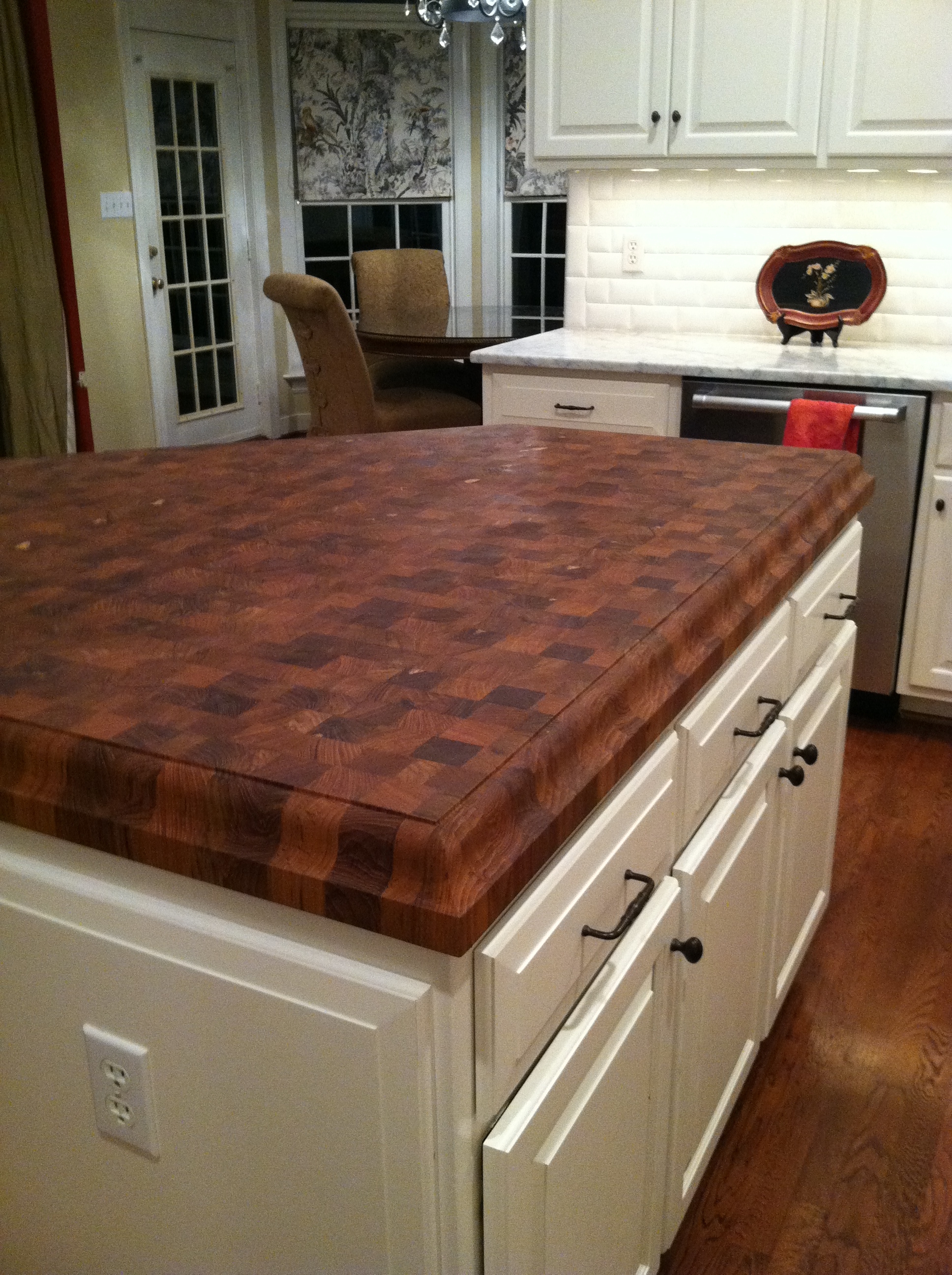
Functionality and Versatility: Butcher block countertops are highly functional and versatile, providing a sturdy and stable surface for various kitchen tasks, including food preparation, chopping, and cooking. They can also be used as dining surfaces, breakfast bars, or even as standalone kitchen islands, adding both style and functionality to the space.
Maintenance and Care: Proper maintenance and care are essential to prolonging the life and beauty of real butcher block countertops. Regular cleaning with mild soap and water, followed by drying with a clean cloth, helps remove food debris and spills while preventing moisture from penetrating the wood. Additionally, applying a food-safe mineral oil or beeswax finish periodically helps nourish the wood and maintain its natural luster.
Resurfacing and Refinishing: Over time, real butcher block countertops may develop scratches, stains, or signs of wear due to regular use. Fortunately, these countertops can be resurfaced and refinished to restore their original beauty. Light sanding followed by reapplication of mineral oil or beeswax finish can help remove surface imperfections and rejuvenate the wood.

Installation Process: Installing real butcher block countertops typically involves hiring a professional contractor or skilled carpenter to ensure proper measurement, cutting, and installation. The countertops are secured in place using adhesive and mounting brackets, with special attention paid to sealing the seams and edges to prevent moisture infiltration.
Cost Considerations: While real butcher block countertops are known for their durability and natural beauty, they can be more expensive than other countertop materials such as laminate or solid surface. The cost of butcher block countertops varies depending on factors such as wood species, size, thickness, and installation complexity.
Customization Options: Real butcher block countertops offer endless customization options, allowing homeowners to personalize their kitchen or workspace according to their unique preferences and style. From choosing the wood species and grain orientation to selecting the thickness and edge profile, there are plenty of customization options available to create a one-of-a-kind countertop.
Heat Resistance: Real butcher block countertops are naturally heat-resistant, making them suitable for use in kitchens where hot pots, pans, and dishes are frequently placed. However, it’s still advisable to use trivets or hot pads to protect the wood surface from direct contact with high heat, which can potentially cause damage or discoloration.
Environmentally Friendly: Real butcher block countertops are considered an environmentally friendly option compared to synthetic materials like laminate or quartz. Hardwood species used for butcher block countertops are renewable and biodegradable, making them a sustainable choice for eco-conscious homeowners.

Limitations and Considerations: While real butcher block countertops offer many benefits, there are some limitations and considerations to keep in mind. Wood is naturally susceptible to moisture, so it’s essential to wipe up spills promptly and avoid prolonged exposure to standing water to prevent warping or damage.
Compatibility with Sink Installation: Real butcher block countertops can be installed with undermount or drop-in sinks, but proper sealing and waterproofing are essential to prevent water damage. It’s recommended to consult with a professional installer or contractor to ensure the proper installation and sealing of the sink cutout.
Longevity and Investment: With proper care and maintenance, real butcher block countertops can last for decades, adding value and beauty to your home. While they may require occasional refinishing or resurfacing, the timeless appeal and durability of hardwood butcher block make them a worthwhile investment for any kitchen or workspace.
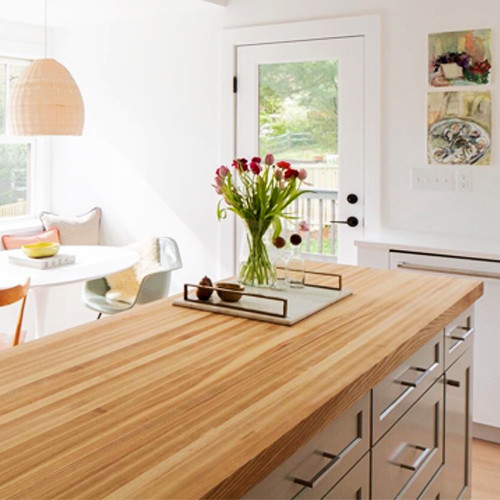
Can I cut directly on real butcher block countertops?
While butcher block countertops are resistant to scratches and cuts, it’s still recommended to use cutting boards to protect the surface from potential damage and prolong its lifespan. Sharp knives and heavy objects can leave marks on the wood surface over time.
How often do I need to oil or wax real butcher block countertops?
The frequency of oiling or waxing real butcher block countertops depends on factors such as usage, exposure to moisture, and personal preference. As a general rule, it’s recommended to apply a food-safe mineral oil or beeswax finish every few months or as needed to maintain the wood’s natural luster and protection.
Are real butcher block countertops prone to staining?
Real butcher block countertops can be susceptible to staining if spills are not promptly cleaned up. However, regular cleaning and maintenance, along with proper sealing and finishing, can help prevent staining and keep the wood surface looking beautiful for years to come.
Can I install real butcher block countertops in a bathroom or outdoor kitchen?
While real butcher block countertops are primarily used in kitchens and indoor workspaces, they can also be installed in bathrooms or outdoor kitchens with proper sealing and protection against moisture and weather elements. It’s essential to choose a hardwood species that is suitable for outdoor use and to maintain the countertops regularly to prevent damage.
How do I repair scratches or dents on real butcher block countertops?
Minor scratches or dents on real butcher block countertops can often be repaired by sanding the affected area and reapplying a food-safe mineral oil or beeswax finish to blend in with the surrounding wood. For deeper scratches or dents, professional refinishing may be required to restore the countertop’s appearance.

Real Butcher Block Countertops
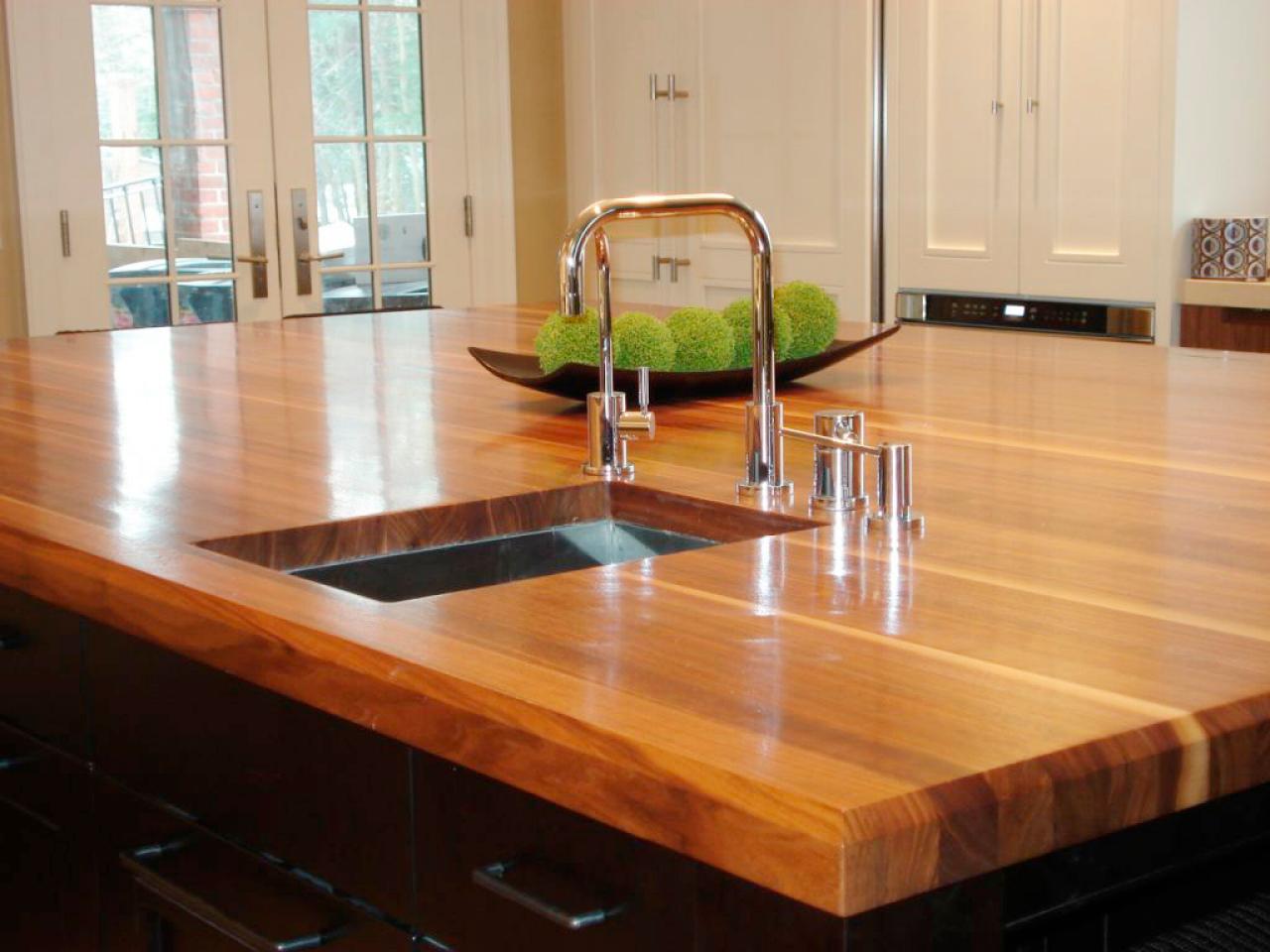
Butcher Block Kitchen Countertops
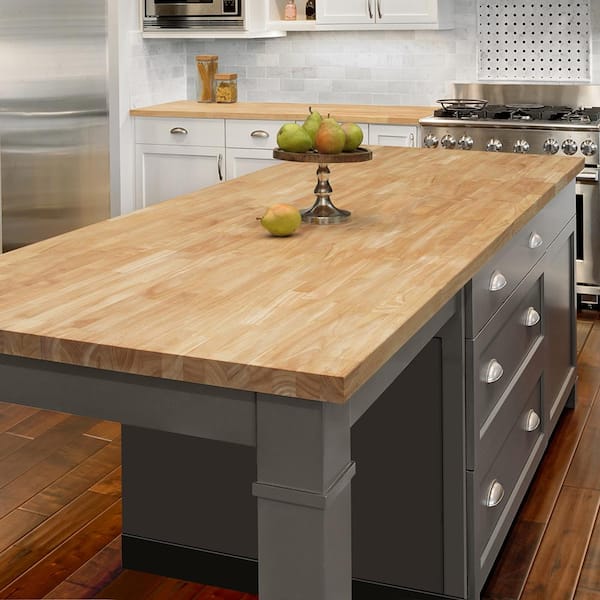
How to Clean Butcher Block Countertops

Wood Butcher Block Countertops in Farmhouse Kitchen
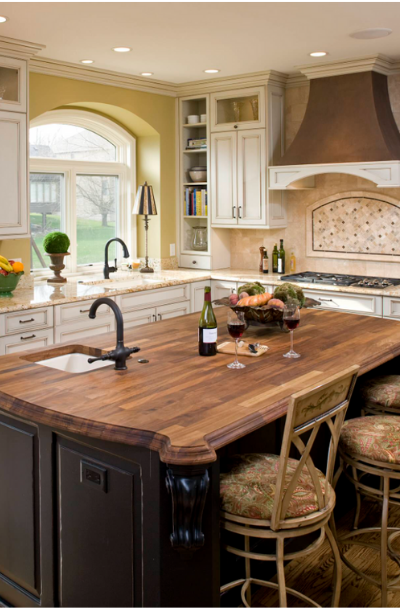
How to Install Butcher Block Countertops
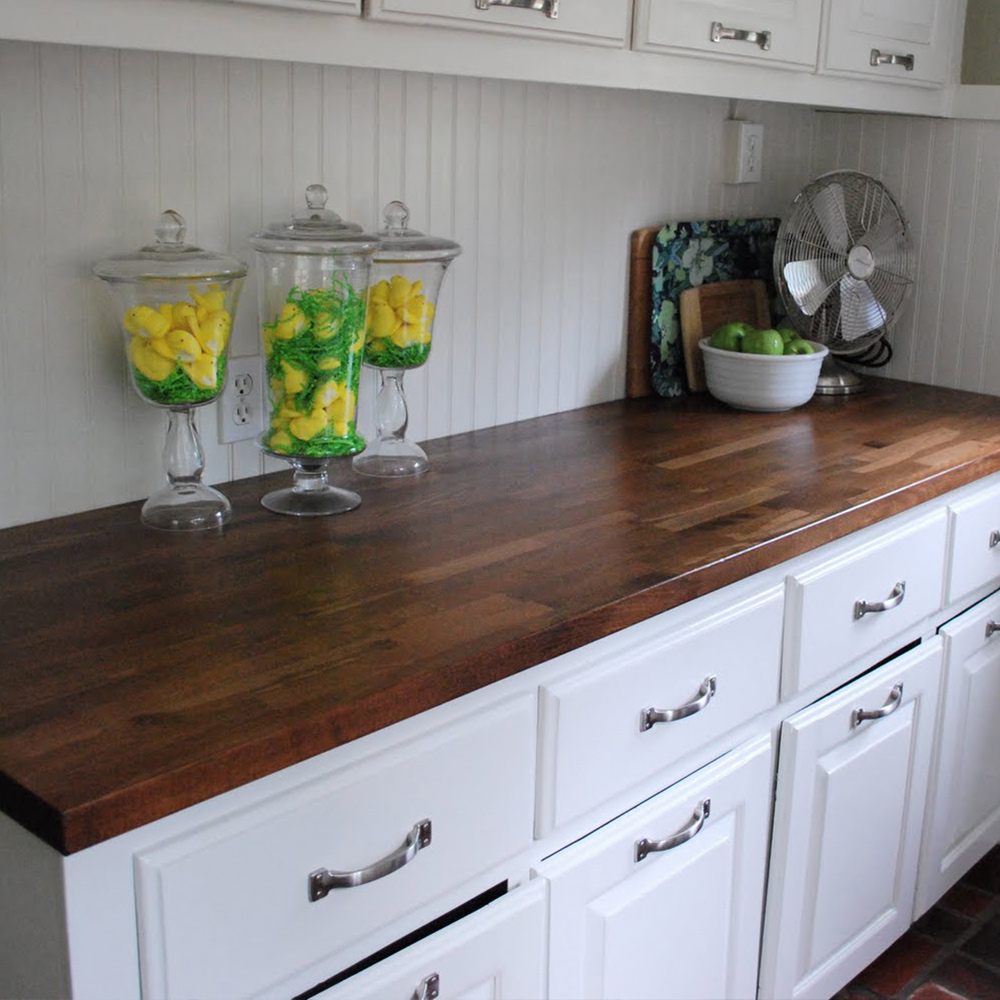
Related articles:
- Island Butcher Block Countertops
- How To Care For Butcher Block Countertops
- DIY Butcher Block Countertops
- Farmhouse Butcher Block Countertops
- Kitchen Designs With Butcher Block Countertops
- Sanding Butcher Block Countertops
- Butcher Block Countertops With White Cabinets
- Build Your Own Butcher Block Countertop
- Butcher Block Countertop With Tile Backsplash
- How To Stain Butcher Block Countertops